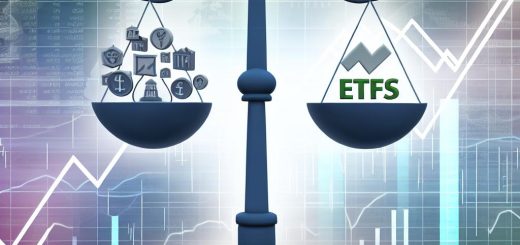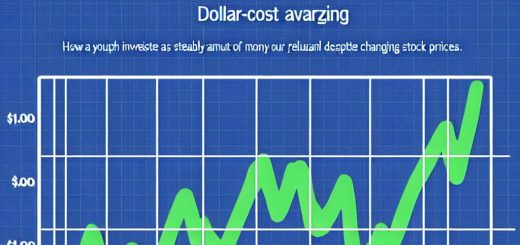How do mutual funds compare to ETFs?
Understanding Mutual Funds and ETFs
Mutual funds and Exchange-Traded Funds (ETFs) are prevalent financial instruments designed to help investors build diversified portfolios. Both of these investment vehicles involve pooling funds from a wide range of investors to acquire a diversified portfolio of assets such as stocks, bonds, or other securities. Offering numerous advantages, mutual funds and ETFs present their unique set of characteristics, management styles, operational frameworks, and costs. Delving deeper, we can explore how these features might inform an investor’s decisions when considering mutual funds versus ETFs.
Structure and Management
The operational model and management approach for mutual funds and ETFs can play a significant role in investment decision-making.
Mutual Funds: These funds usually operate under an active management model, where fund managers bear the responsibility for deciding which securities are acquired or disposed of to fulfill the predefined investment objectives. This requires the investor to rely on the expertise and decision-making capabilities of the fund managers. Investors engage in transactions directly with the fund. They buy shares at the net asset value (NAV), a figure established at the closure of each trading day, reflecting the fund’s market value minus liabilities.
ETFs: On the contrary, ETFs typically adhere to a passive management model, often mirroring a specific index or sector. While actively managed ETFs exist, they generally carry fewer expenses compared to mutual funds due to their conventional structures. ETFs are traded on stock exchanges like regular corporate stocks, enabling investors to engage in transactions throughout the trading day, benefitting from market prices that could vary significantly from the NAV depending upon market dynamics.
Cost and Fees
The cost implications associated with mutual funds and ETFs have a substantial influence on an investor’s overall returns.
Mutual Funds: The actively managed nature of mutual funds often results in higher fees, notably through management fees, which compensate for the expertise of the management team. In addition to administrative expenses, some mutual funds may impose sales charges, referred to as “loads.” Some funds offer no-load or reduced-load options, emphasizing the importance of thoroughly understanding any fees charged, as these can notably erode potential returns.
ETFs: Comparatively, ETFs are generally characterized by lower costs attributed to their predominantly passive management. However, brokerage commissions can arise, particularly when investors engage in frequent buying or selling of ETF shares. The inception of zero-commission trading platforms has lessened this fee burden in recent years, increasing ETF attractiveness.
Tax Efficiency
Another factor distinctly separating mutual funds from ETFs is how they handle taxation.
Mutual Funds: Due to active management, capital gains distributions can arise from managers buying or selling securities within the fund. This results in taxable events for investors, even if they have not disposed of any shares during the fiscal year. Consequently, mutual fund investors could face substantial tax liabilities annually.
ETFs: ETF investors benefit from a level of tax efficiency, primarily due to their “in-kind” creation and redemption protocol. This feature minimizes internal taxable events, though individuals still face capital gains taxes when selling ETF shares at a profit. This tax efficiency can serve as a significant draw for long-term investors.
Liquidity and Accessibility
Liquidity and access to funds can vary significantly between mutual funds and ETFs.
Mutual Funds: The trading structure of mutual funds, in which transactions are finalized at the end of the trading day, implies limited flexibility for investors. This restriction might not align with the objectives of investors who desire more granular control over the timing of their trades or need the capacity to swiftly react to changes in the market environment.
ETFs: The convenient, real-time trading aspect of ETFs affords substantial flexibility. Investors are availed the opportunity to benefit from intraday price movements, a feature especially appealing to active traders who prioritize being agile and responsive to fluctuating market conditions.
Understanding Investment Objectives and Risk Tolerance
When pondering the decision between mutual funds and ETFs, a careful consideration of one’s investment objectives, time frame, and risk tolerance becomes necessary.
Many investors choose mutual funds for their active management appeal, relying on professional oversight to navigate complex markets. A fund manager’s expertise can be advantageous to novice investors or those lacking time to manage individual investments. In contrast, ETFs offer cost-effective, tax-efficient solutions, aligning well with those who appreciate trading autonomy and minimalistic fee structures.
Investors should strive for a match between their financial aspirations and the benefits associated with either mutual funds or ETFs. Performing in-depth research or seeking guidance from a financial advisor could help in making informed decisions in aligning investment choices with personal financial goals.
Conclusion
The decision between mutual funds and ETFs boils down to an individual investor’s needs, preferences, and financial goals. Both financial products have unique advantages that cater to different investment strategies. Mutual funds may potentially suit those valuing the guidance of active management and extensive oversight from seasoned professionals. Meanwhile, ETFs provide an appealing alternative due to their cost-effectiveness, increased tax efficiencies, and greater control over trading timing, facets that can serve long-term investors well.
In any investment decision-making process, conducting a thorough analysis of the inherent benefits and potential drawbacks is beneficial. Understandably, external resources such as investment guidance from the U.S. Securities and Exchange Commission can be a valuable tool for those seeking a deeper understanding. Investors should be well equipped with insights and, if necessary, consult financial experts to tailor investment decisions that best align with their financial circumstances and aspirations.
This article was last updated on: March 26, 2025









